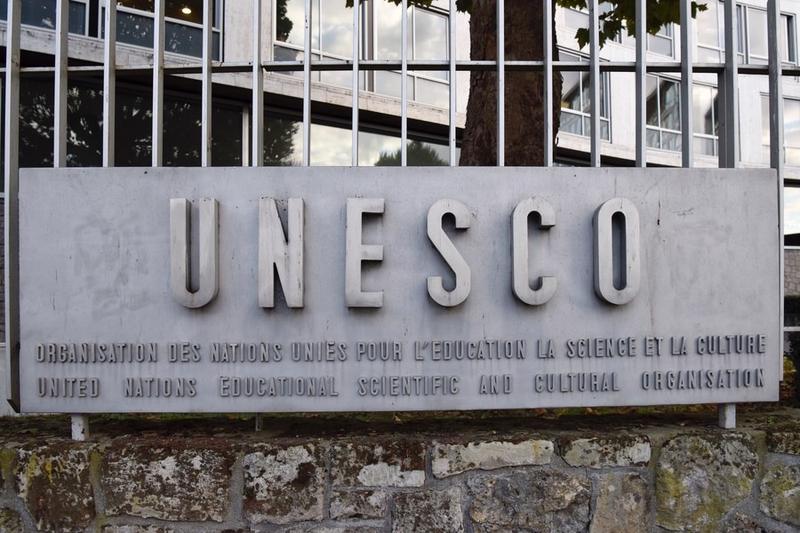 In this file photo taken on Oct 12, 2017, the logo of the United Nations Educational, Scientific and Cultural Organization (UNESCO) is seen at UNESCO headquarters in Paris, France. (PHOTO / XINHUA)
In this file photo taken on Oct 12, 2017, the logo of the United Nations Educational, Scientific and Cultural Organization (UNESCO) is seen at UNESCO headquarters in Paris, France. (PHOTO / XINHUA)
PARIS - The United Nations Educational, Scientific and Cultural Organization (UNESCO) on Thursday called on governments to regulate the use of Generative Artificial Intelligence (AI) in education.
Publishing its first-ever global Guidance on Generative AI in Education and Research, UNESCO said that the education sector is largely unprepared for the ethical and pedagogical integration of AI tools. These tools have far-reaching implications for education and research, UNESCO added.
UNESCO's guidance sets out seven key steps governments should take to regulate Generative AI and establish policy frameworks for its ethical use in education and research, including through the adoption of global, regional and national data protection and privacy standards
"A recent UNESCO global survey of over 450 schools and universities showed that less than 10 percent of them had institutional policies and/or formal guidance concerning the use of generative AI applications, largely due to the absence of national regulations," the organization said.
READ MORE: AI to influence future direction of education
Its guidance sets out seven key steps governments should take to regulate Generative AI and establish policy frameworks for its ethical use in education and research, including through the adoption of global, regional and national data protection and privacy standards.
The guidance also sets an age limit of 13 for the use of AI tools in the classroom, and calls for teacher training on the subject.
ALSO READ: Generation AI: Education reluctantly embraces the bots
Building on UNESCO's 2021 Recommendation on the Ethics of Artificial Intelligence, and the 2019 Beijing Consensus on Artificial Intelligence in Education, the guidance promotes "human agency, inclusion, equity, gender equality and cultural and linguistic diversity," said UNESCO, adding that it aims to support countries to implement immediate actions, plan long-term policies and develop human capacity to ensure a human-centered vision of these new technologies.


